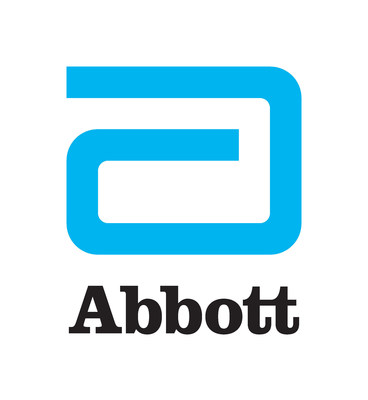



SAN FRANCISCO, Sept. 28, 2019 /PRNewswire/ -- Abbott (NYSE: ABT) today announced new data that suggest Abbott's investigational TriClip™ device may offer physicians an effective minimally invasive repair option for patients suffering from a leaky tricuspid valve, a condition also known as tricuspid regurgitation (TR). For patients suffering from moderate to severe TR, the new data found treatment with TriClip was safe and associated with strong clinical improvement at six-months, including a reduction in TR and improvement in quality of life.
The data was presented earlier today at the 31st Transcatheter Cardiovascular Therapeutics (TCT) annual scientific symposium of the Cardiovascular Research Foundation in San Francisco (September 25 -29). The results build upon the initial 30 day data from the TRILUMINATE Feasibility Study, which suggested the promise of TriClip in treating people suffering from this difficult-to-manage structural heart disease.
The tricuspid valve is located between the two chambers on the right side of the heart and is challenging to treat because of its location. A leaky tricuspid valve is a result of the valve's three leaflets not closing properly, and in severe cases this leaking can result in long-term complications such as atrial fibrillation, heart failure and, ultimately, death. Despite advancements in catheter-based devices for treating aortic and mitral valve disease, there are currently no commercially approved minimally invasive devices on the market to treat a leaky tricuspid valve, leaving few options available to patients with moderate to severe TR who are at high risk of experiencing complications with open-heart surgery.
"Since we enrolled our first patient in the study, we have seen promise in this device for effectively treating people with tricuspid regurgitation," said Georg Nickenig, M.D., Ph.D., professor and chief, Department of Cardiology, University Hospital, Bonn, Germany, and lead investigator of the study. "The potential for a catheter-based option like Abbott's TriClip device is promising for long-term patient outcomes, and we look forward to continuing to share additional findings in the future."
After six months, the TRILUMINATE Feasibility Study showed patients who received Abbott's TriClip device saw a number of benefits, including:
- Reduction of tricuspid regurgitation. Within the study, 87% of patients had a reduction in their TR at 6 months, with 57% of patients implanted having a TR classification of moderate or better vs. only 6% of patients with the same classification at the time of enrollment.
- Symptom improvement. Patients receiving TriClip had reduction in their symptoms, with 87% of patients implanted with TriClip being classified as NYHA functional class I/II at six months vs. only 25% of patients receiving the same classification at the time of enrollment. (NYHA is a classification of functional limitations resulting from cardiac disease.)
- Quality of life improvements. Patients receiving TriClip showed improved KCCQ (Kansas City Cardiomyopathy Questionnaire) scores and a reduction in symptoms that are associated with a reduced burden of their clinical condition and improved physical output.
"There are currently no commercially approved minimally invasive devices on the market to treat a leaky tricuspid valve; the advancements shown in the TRILUMINATE Feasibility study offer hope for people suffering from this difficult-to-manage and difficult-to-treat structural heart disease," said Neil Moat, M.D., chief medical officer of Abbott's structural heart business. "We have seen the need for a safe and effective device to treat the tricuspid valve without open heart surgery, so we have focused efforts to support this patient population."
The TRILUMINATE Feasibility study was a prospective, single-arm, multi-center study, which investigated the performance of Abbott's proven clip-based repair technology using the tricuspid valve repair system, TriClip, in 21 sites across the U.S. and Europe.
TriClip builds upon the proven success of Abbott's clip-based MitraClip technology, which treats people with leaky mitral valves, or mitral regurgitation (MR). TriClip repairs the tricuspid valve without the need for an invasive surgical procedure and is delivered to the heart through the femoral vein, a blood vessel in the leg. The device works by clipping together a portion of the leaflets of the tricuspid valve to reduce the backflow of blood, allowing the heart to pump blood more efficiently, and therefore relieving symptoms of TR and improving patient quality of life.
Abbott's TriClip™ is an investigational device only.
For U.S. Important Safety Information about MitraClip, visit: https://www.structuralheartsolutions.com/us/mitraclip-isi.
About Abbott
Abbott is a global healthcare leader that helps people live more fully at all stages of life. Our portfolio of life-changing technologies spans the spectrum of healthcare, with leading businesses and products in diagnostics, medical devices, nutritionals and branded generic medicines. Our 103,000 colleagues serve people in more than 160 countries.
Connect with us at www.abbott.com, on LinkedIn at www.linkedin.com/company/abbott-/, on Facebook at www.facebook.com/Abbott and on Twitter @AbbottNews and @AbbottGlobal.
SOURCE Abbott

 BACK TO PRESS RELEASES
BACK TO PRESS RELEASES